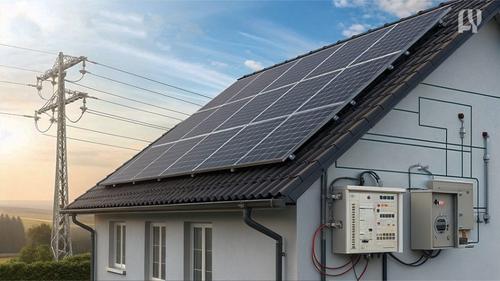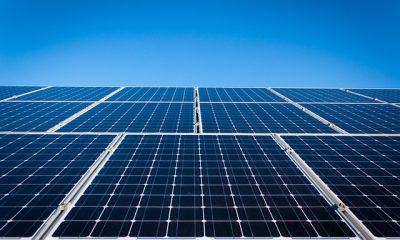411
Eskom’s Deadline Alert: Solar Users Must Register Before 2026 or Face R50,000 Fees

South African homeowners with solar power systems have been given a critical deadline: register with Eskom before March 2026 or face registration and installation costs that could exceed R50,000.
Eskom has launched a new campaign urging residential owners of Small-Scale Embedded Generation (SSEG) systems, including solar photovoltaic (PV) installations, to comply with national regulations. Failure to register on time could result in significantly higher expenses.
Who Needs to Register?
According to Nersa (National Energy Regulator of South Africa), all SSEG owners—even those with systems under 100kVA—must register with Eskom or their local municipality. Currently, households with installations up to 50kVA enjoy waived registration fees and free bidirectional smart meters, but this exemption expires in March 2026.
Larger installations (above 50kVA) follow a different fee structure, but most residential systems fall under the 16kVA range, making the current waiver a major cost-saving opportunity.
What Happens After Registration?
Once registered, customers will switch to the Homeflex tariff, where:
- Fixed charges remain the same for both SSEG and non-SSEG users.
- Solar users can earn credits for excess energy fed back into the grid.
Eskom emphasizes that connection charges and tariff conversion fees (covering quotations, meter installations, and physical connections) are waived until 2026—but only for those who register in time.
How to Register (3 Simple Steps)
- Apply via Email – Send a request to your provincial Eskom address (e.g., Gauteng@eskom.co.za) with #Applications in the subject line.
- Payment & Meter Installation – Eskom will install a smart meter (free for ≤50kVA systems until 2026).
- Deposit & Billing Setup – Residential users may pay a deposit (R3,500–R4,800), spread over 12 months.
Safety & Compliance Costs
Eskom insists registration ensures grid safety and compliance with NRS 097-2 standards. However, the most contentious requirement is a signed-off Embedded Generator Installation (EGI) report by a registered engineer—which can add R20,000+ to costs.
A Certificate of Compliance (CoC) for internal wiring is also mandatory. Delaying registration beyond 2026 could push total compliance costs above R50,000.
Off-Grid Users Exempt (With Proof)
Fully off-grid households not connected to Eskom’s network don’t need to register—but must prove their independence from the grid.
Act Now to Avoid Penalties
Eskom’s message is clear: “Register now to lock in savings before fees skyrocket.” With solar adoption rising, securing compliance early ensures safety, cost benefits, and uninterrupted energy access.
“Eskom remains committed to supporting customers for safe, efficient solar integration,” the utility stated. Will you beat the deadline?
{Source BusinessTech}
Follow Joburg ETC on Facebook, Twitter , TikTok and Instagram
For more News in Johannesburg, visit joburgetc.com



























